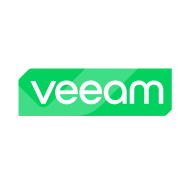

VMware Live Recovery and Veeam Data Platform compete in the disaster recovery and data management industry. VMware Live Recovery seems to have the upper hand in enterprise environments due to its automation capabilities, while Veeam Data Platform is perceived as more versatile for diverse infrastructure needs.
Features: VMware Live Recovery provides centralized recovery plans with extensive storage integration and automated workflows. It also offers non-disruptive testing and failback capabilities, which are essential in complex virtual environments. Veeam Data Platform excels with its backup and replication features, efficiently supporting VMware and Hyper-V integration. It includes instant VM recovery and an intuitive interface for seamless data management.
Room for Improvement: VMware Live Recovery could enhance its offering with a built-in database, easier deployment options, and improved stability and bandwidth control. On the other hand, Veeam Data Platform would benefit from better support for non-Windows systems, a simplified user interface, and more flexible pricing structures, as its current model is becoming complex.
Ease of Deployment and Customer Service: VMware Live Recovery focuses on on-premises deployment but may vary in customer support based on package options. Veeam Data Platform is more adaptable, supporting hybrid and private cloud environments, which caters to various infrastructure needs. Its proactive and reliable support enhances user experience positively.
Pricing and ROI: VMware Live Recovery's pricing is tied to VM count, which can escalate costs but delivers a significant ROI by reducing disaster recovery expenses. Veeam Data Platform offers competitive pricing models, providing a good feature-cost balance, with recent price increases noted by some users. Both platforms present considerable ROI via automated disaster recovery capabilities, with VMware favored in enterprise scenarios and Veeam offering flexible licensing for diverse customers.
They are knowledgeable.
The technical support from VMware is very good and operates based on a service level.
Integration with other vendors is also seamless.
In order to scale Veeam Data Platform, we have to pay a lot more money.
There are no issues with stability in Veeam Data Platform.
Reducing it by 20% would make it more accessible to a broader range of customers.
The improvement we would like to see is the option to scale Veeam Data up in smaller sections rather than large sections, which requires paying much more.
It's important for the cost to be justified based on the features used in production.
I would like to see improved integration services with other solutions, such as SIEM management or security monitoring.
The licensing area needs improvement as the cost per virtual machine is high.
A reduction of 20% in the current cost would make the solution more attractive to clients.
From what I know, it is expensive to add modules, with a scale rating of eight out of ten.
Previously, when acquiring a license for Ethiopian drug supply chains, the price was significantly high, especially after Broadcom joined VMware.
For cloud-based solutions, the cost seems quite pricey, so we stick to on-premises deployment.
The platform is user-friendly, comprehensive, and compatible with numerous market solutions, including virtualization and bare metal servers.
It is also one of the most scalable backup solutions I've worked with.
It is used for data replication between data centers and allows for quick response in times of failure, ensuring data availability.
The solution offers a rich set of features, well adapted in the market.
The capability and the functionality of the features are very helpful for us.


Veeam Data Platform ensures comprehensive data resilience by offering secure backups and intelligent data insights, catering to the complexities of modern data management.
Veeam Data Platform empowers businesses with reliable data protection, orchestrated recovery, and streamlined management. Providing peace of mind, it guarantees data is secure, available, and effortlessly recoverable. Organizations benefit from features such as instant recovery, simplified management, and compatibility with virtual environments. While it shines in backup and restore capabilities, it calls for improvements in integration with physical servers and enhanced cyber security features.
What are the key features of Veeam Data Platform?Organizations in industries like finance, healthcare, and manufacturing utilize Veeam Data Platform for critical data management, ensuring business continuity and disaster recovery. Employed in securing both virtual and physical workloads, Veeam integrates cloud storage for enhanced scalability and efficiency.
We monitor all Disaster Recovery (DR) Software reviews to prevent fraudulent reviews and keep review quality high. We do not post reviews by company employees or direct competitors. We validate each review for authenticity via cross-reference with LinkedIn, and personal follow-up with the reviewer when necessary.